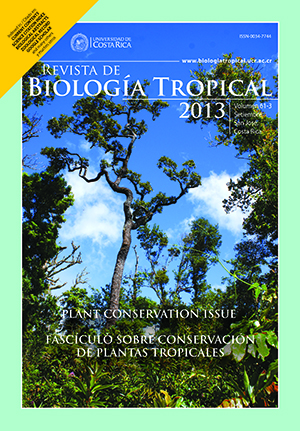Abstract
Phytoremediation is an ecologically sound biotechnology directed to cleaning up contaminated soils. The study of tree species to treat petroleum contaminated soils is scarce; moreover, the combination of phytoremediation with bioaugmentation and biostimulation processes is also limited. Thus, this work evaluated the effects of the inoculation of Glomus intraradices, a bacterial consortium (M2BOS1-R2 and M2BOSI-F4) and Trichoderma viride, on the growth of Casuarina equisetifolia, fertilized with Floranid® or Triple 17, when sown in a diesel-contaminated soil (7 500mg/kg). The factorial experiment 2x5x3 included 30 treatments with 10 replicates in a completely randomized design under greenhouse conditions for 120 days. Diesel significantly diminished plant height, total biomass, and plant index quality (PIQ). Glomus or bacterial consortium significantly increased plant height, total biomass and PIQ when compared to the inoculation of the three microorganisms or to the control. Floranid had negative effects on plant growth and PIQ at diesel contamination. Fertilization with Triple 17 combined with the three microorganisms stimulated plant growth in the absence of diesel, whereas in the presence of this contaminant the treatments combining Triple 17 with the bacterial consortium or with Trichoderma had better plant growth and PIQ. Mycorrhizal colonization was inhibited due to diesel contamination, and especially when Floranid was applied. The fertilizer Triple 17 (biostimulation) combined with the beneficial microorganisms (bioaugmentation) improved growth responses of C. equisetifolia in diesel-contaminated soil.Comments
Downloads
Download data is not yet available.






